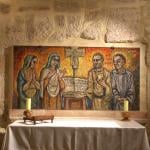President Obama wants European countries to do a better job of assimilating Muslims. Easy for an American President to say. Much harder for European nations to accomplish. George Friedman argues at Stratfor that “The current crisis has its origins in the collapse of European hegemony over North Africa after World War II and the Europeans’ need for cheap labor. As a result of the way in which they ended their imperial relations, they were bound to allow the migration of Muslims... Read more















